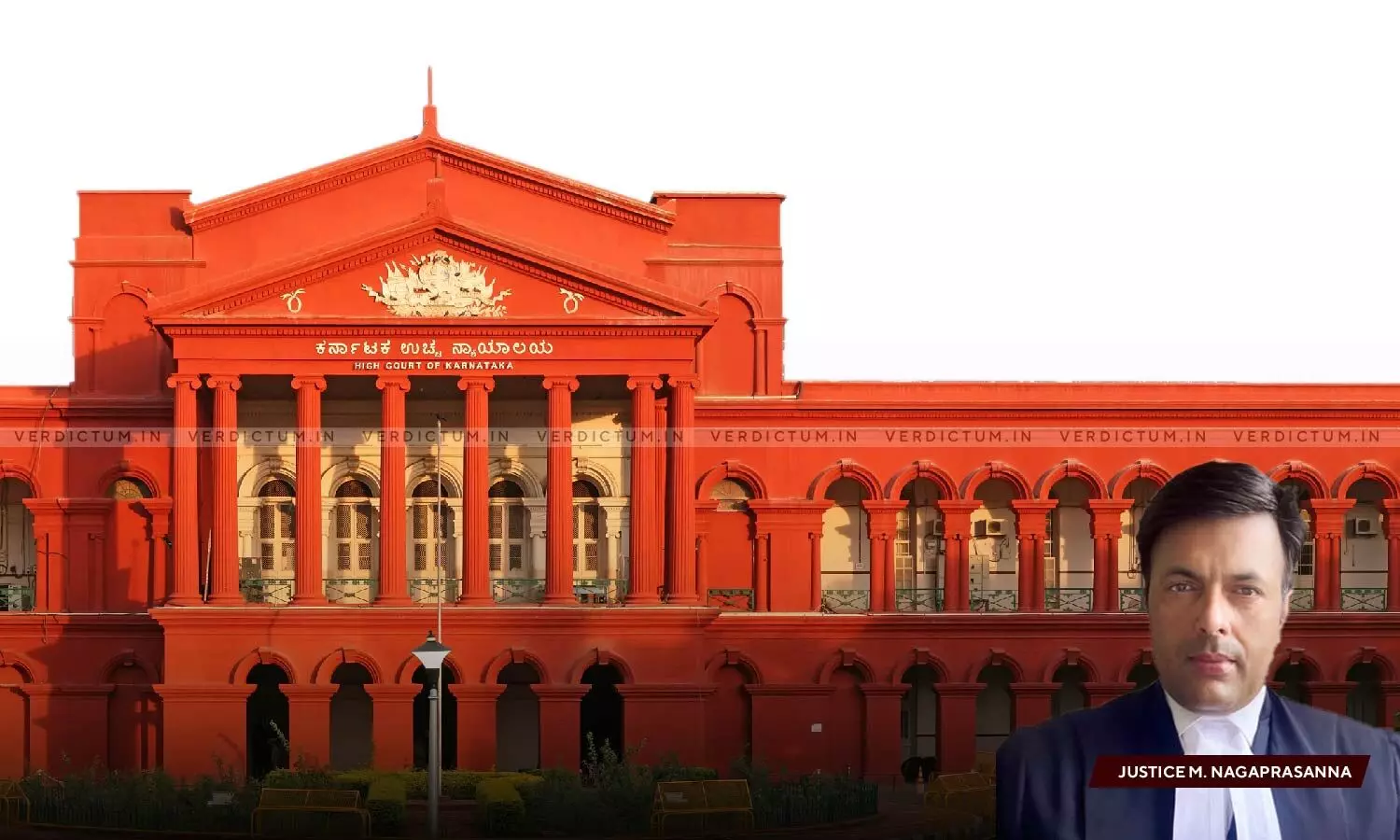
Proceedings Shrouded With Disputed Questions Of Fact: Karnataka HC Rejects Doctor’s Plea Against CBI In 2006 PGET Malpractice Case
 |
|The Karnataka High Court has rejected plea of Doctor against CBI (Central Bureau of Investigation) in 2006 Post Graduate Entrance Test (PGET) malpractice case. It said that the entire proceedings against the accused are shrouded with seriously disputed questions of fact.
The petitioner/accused had filed a criminal petition against the order of the Sessions Judge and Special Judge for CBI Cases rejecting her application seeking discharge from the array of accused.
A Single Bench of Justice M. Nagaprasanna held, “The submission of the learned counsel for the petitioner that chances of conviction being very bleak, the proceedings should be quashed is unacceptable, as the entire proceedings are shrouded with seriously disputed questions of fact. If the submission of the learned counsel is accepted and proceedings are closed, it would run foul of the judgment of the Apex Court in the case of KAPTAN SINGH v. STATE OF UTTAR PRADESH”
Advocate Mahesh S. appeared for the petitioner/accused while Special Public Prosecutor P. Prasanna Kumar appeared for the respondent/CBI.
Brief Facts -
The petitioner was a doctor by profession, a participant in the postgraduate entrance test conducted by the Rajiv Gandhi University of Health Sciences for admission to postgraduate course. She came out successful in the written test securing high percentage of marks and was accordingly given admission to postgraduate course. A little later, a paper publication cropped up to the effect that few of the students who had poor academic career hitherto had secured high marks in PGET and the issue was blown out in the media which necessitated the Government to constitute a committee. This led to the matter being entrusted to the CBI and the CBI registered a crime alleging that the accused who was the Vice-Chancellor of the University and other accused, the then Registrar of the University, along with Assistant Registrar of the University had hatched a conspiracy with other accused who were candidates in the entrance examination.
Pursuant to the criminal conspiracy so hatched, question papers of the entrance examination were leaked specifically to persons who were named as accused in the FIR. The CBI then conducted an investigation and filed a charge sheet before the concerned Court and the petitioner was arrayed as one of the accused. The petitioner approached the High Court seeking a direction of registration of her postgraduate degree in general medicine as it was not done on account of the charge sheet being filed by the Police against her. The Court disposed of the writ petition with certain directions and the petitioner then preferred an application under Section 227 of Cr.PC. seeking her discharge from the array of accused. The concerned Court rejected the application for discharge not only of the petitioner but all those who preferred discharge applications. It is this order along with entire proceedings, that were called in question in the subject petition.
The High Court in view of the facts and circumstances of the case noted, “… the polygraph test conducted upon the petitioner is completely against her. The next step that the CBI would take is conduct of a brain mapping analysis. … The findings of brain mapping insofar as few of the members are concerned are that the information processing and generation of ERP responses are indicative of the possession of knowledge of the activities and associated with the targeted words of primary encoding which is indicative of the fact that the petitioner was aware of what was happening in the entire alleged episode of crime.”
The Court further took note of the fact that brain mapping or polygraph test is not conclusive piece of evidence to quash, acquit or convict any accused and that there should be corroborative material.
“With the statements of CWs-55, 56 and the documents it cannot be said that the petitioner is entitled for a discharge from the array of accused. Polygraph test may be the foundation. But, the evidence is on the basis of documents and statements as well. Therefore, these statements will have to be put to test in a trial in which it is for the petitioner to come out clean”, said the Court.
The Court, therefore, did not find any merit in the petition as well as no error warranting interference with the order passed by the concerned court.
Accordingly, the High Court rejected the petition.
Cause Title- Dr. Neha Bansal v. Central Bureau of Investigation